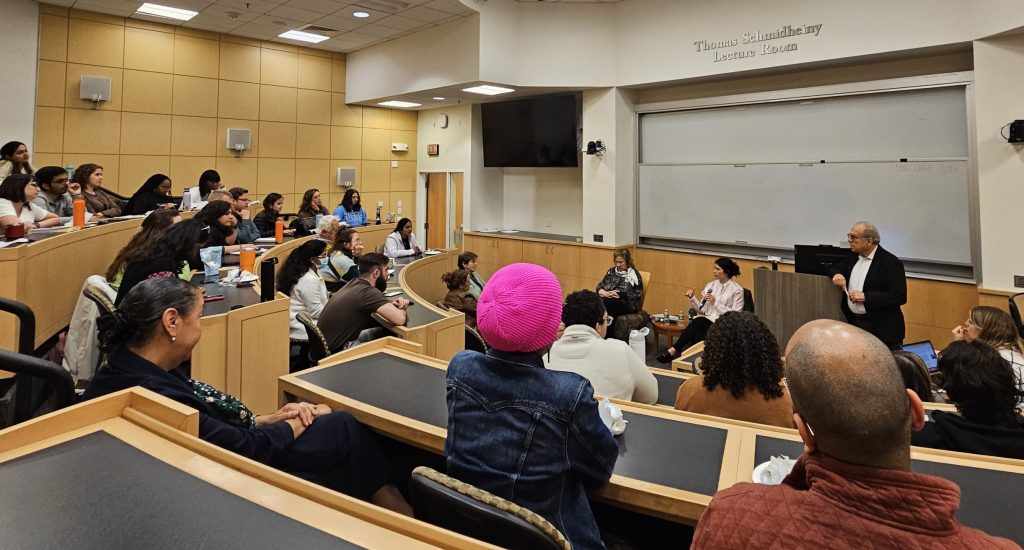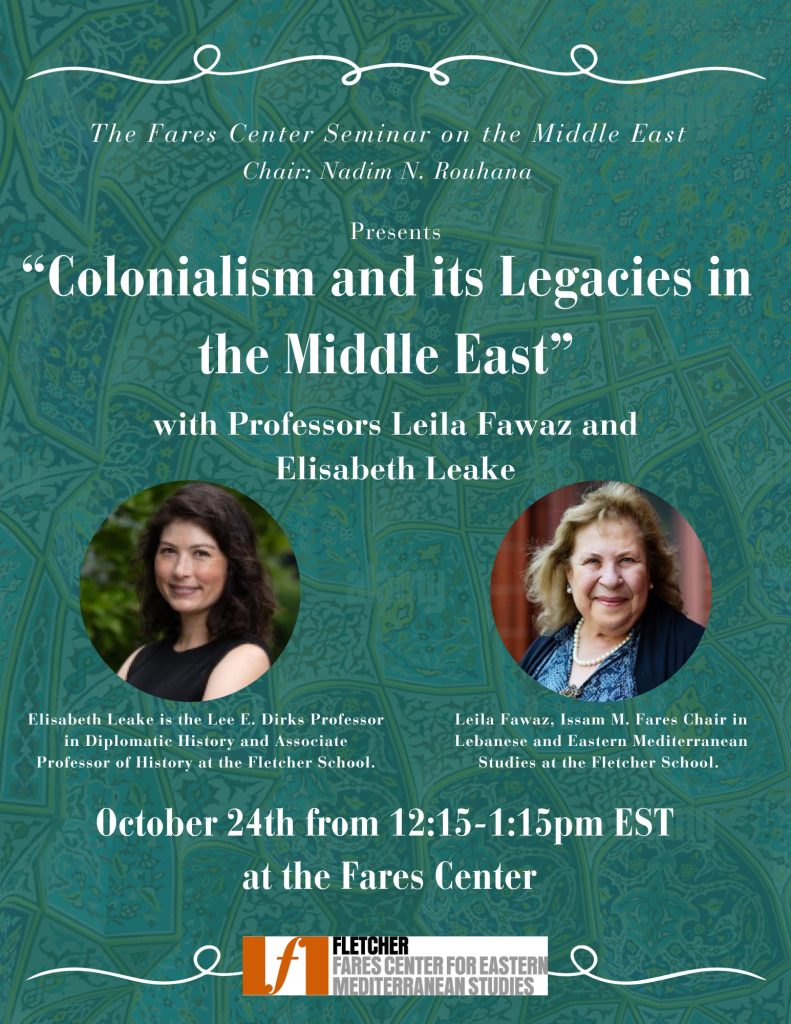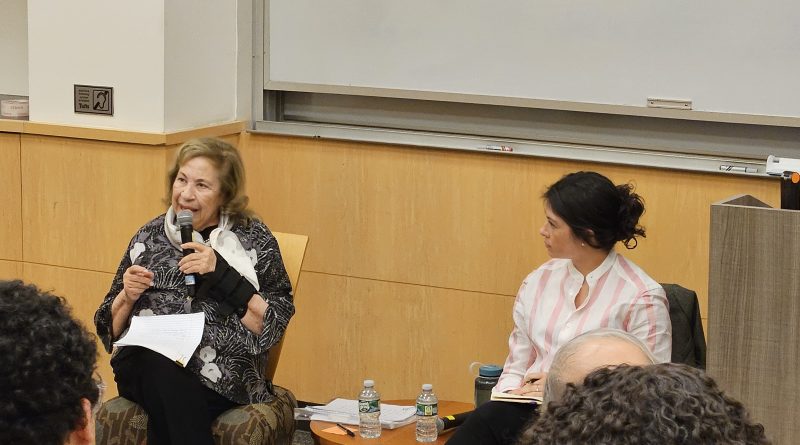Colonialism and its Legacies in the Middle East with Professors Leila Fawaz and Elisabeth Leake
On Tuesday, October 24th, the Fares Center hosted a seminar on Colonialism and its Legacies in the Middle East with Fletcher Professors Leila Fawaz and Elisabeth Leake. The speakers provided an overview of the impact of colonialism in the Middle East and its legacies in the post-colonial and contemporary eras.
Professor Fawaz focused on the history of the relationship between the Middle East and Europe. She explained how colonization in the Middle East started with trade, where European leaders were trying to get into the markets of the Middle East, they were begging locals to engage in trade with them. These trade relations gave them a window of opportunity to enter the region. Then the industrial revolution and steam navigation came, Western traders became the bosses and gradually took over the market and its profits. It is no coincidence that the word “imperialism” became popularized in the 1870s. The leaders of the industrial revolution dominates over those who used to be powerful.
This change in the balance of powers continues to this day. Fawaz argued that the people of the East must think of new ways of imposing themselves. For example, the policy of non-alignment during the Cold War gave power to some of these countries. Today, the people of the Middle East continue to find new ways of imposing themselves, of gaining power. Nowadays we refer to their attempts as “terrorism”. But how do you impose yourself on the people who have everything? They have the industrial revolution, all the weaponry, the financial means. This imbalance of power will continue to pressure those subjected to exploitation and unfair relations to gain power, and the mechanisms they choose to do so will differ over time and geography.

Professor Leake focused on broad patterns; on two broad issues in particular: themes and methods. What are key themes for us to take into consideration when thinking about encounters between the Middle East and imperialism? And what does history have? It is important to think about the Middle East as a region that has always been rooted in global affairs and global encounters. In terms of geography, what are the interconnections between the Middle East, from Algeria to Afghanistan, what connects them? How about the diversity? The people’s? The socio-political structures that existed before imperialism? Important to think about the diversity of the Middle East.
The first imperial encounter was during the Ottoman period. The next imperial encounter was with Western empires. After that came the mandate system, even though it no longer used the formal language of empire. Ideas and practices taking place in this territory traveled from Algeria to the Mandates, and to the British Empire at large, influencing other projects. The next imperial encounter was the Cold War, with the US and Soviet Union interactions in the Middle East. This era included militarized power, the CIA as a tool of the American empire, covert action, etc. Same with the Soviet Union. The idea of imperial encounters is essential to understand Middle Eastern history.
The Middle East is rooted in historical affairs: issues like migration, within the Middle East but also from the Middle East to other parts of the world. Imperial histories of the Middle East and South Asia; the spread of new technologies and forms of transport; Hajj as a global event that brings people together from all around the world; the presence of colonized people and anticolonial networks; trade and labor as well. Depth of knowledge is important, but you also need breadth to be able to draw comparisons and observe connected histories. The British military and imperial presence in the Middle East cannot be understood without understanding British military imperialism in India. These connections are very significant.
Leake also emphasized that in order to engage and understand the Middle East and the role of imperial powers in the region it is essential to know local languages, such as Arabic, Hebrew or Turkish. One also needs to read deeply. One needs to be able to understand what happened in the 18th-19th centuries to understand current affairs.


